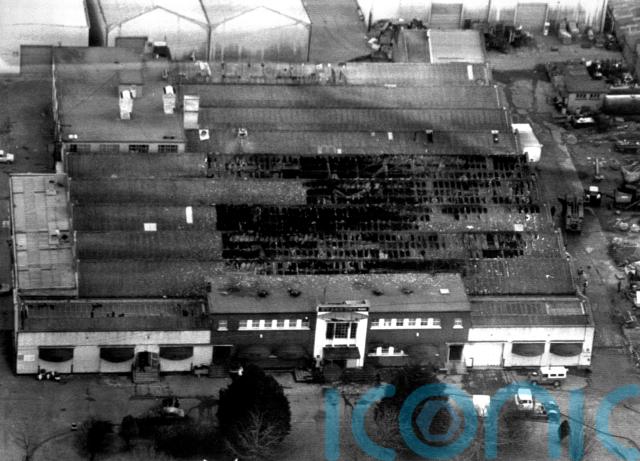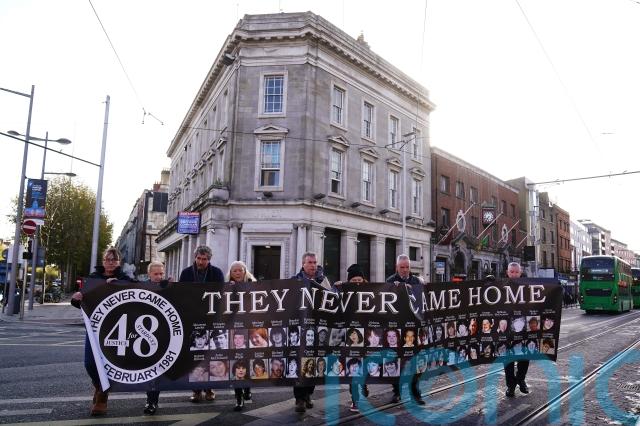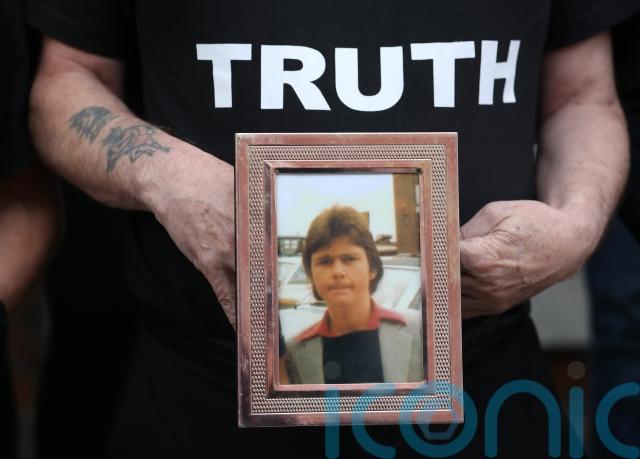
A lawyer representing families of people who died in a nightclub fire in Dublin in 1981 has raised concerns over the proposed order of witnesses to be called at an upcoming inquest.
In the early hours of Valentine’s Day 1981, a fire occurred at the Stardust Ballroom in Artane in which 48 people died.
A jury has been empanelled for an inquest into the fire, which begins on Tuesday April 25.

The inquest will begin with pen portraits which are not considered formal evidence.
The formal call of witnesses is due to start with staff and management rather than patrons of the nightclub.
At a pre-inquest hearing on Thursday, Sean Guerin SC said this approach was a “source of concern”.
“There’s a couple of reasons for that,” he said.
“The first is that patrons of the premises and those who went there on the night with friends and family expecting to be received and accommodated in a safe and hospitable way, that those are the witnesses of first importance in the inquest process.
“We do think that the natural order (is) for the patrons of the premises to be heard first.”

Dublin district coroner Dr Myra Cullinane said the reason the reason staff and management would be called first is in the interest of “chronology” and taking into account one the modules of the inquest which is the preparations for the night of the fire.
Mr Guerin contended it would be preferable to call patrons and emergency service personnel first because their testimony may lead to evidential issues which would be required to be addressed by staff and management.
“If you call them (staff) first without them having had an opportunity to hear that evidence, the very real possibility arises that some or many of them have to be recalled,” he said.
“That’s a practical and evidential aspect of the issue.”
Mr Guerin said this would be the approach in a criminal trial where one would start with core facts and then in a structured way develop the background.
“The core facts here are the starting of the fire and the experience of the patrons in their efforts, obviously in many cases unsuccessful, to escape from that fire and the premises in which it was taking place,” Mr Guerin said.
“It makes a lot more sense and will be in fact more consistent with the way in which one generally presents a case,” he said.

Dr Cullinane pointed out the inquest was not a criminal trial.
“My primary concern is that the jury in this inquest follows the evidence and understands their task.
“They are not in a criminal trial, they are at an inquest.
“And I think I indicated in my proposed procedure, that this will be an inquest conducted in the same manner as any inquest in the State notwithstanding the much broader scope of witnesses to be heard.”
Mr Guerin said chronological presentation is not necessarily the easiest way for a jury to assimilate information.
Dr Cullinane said she would give more consideration to the order of witnesses.
However she said it would be not on his position but rather on how she feels the jury will be able to assimilate evidence.
Subscribe or register today to discover more from DonegalLive.ie
Buy the e-paper of the Donegal Democrat, Donegal People's Press, Donegal Post and Inish Times here for instant access to Donegal's premier news titles.
Keep up with the latest news from Donegal with our daily newsletter featuring the most important stories of the day delivered to your inbox every evening at 5pm.